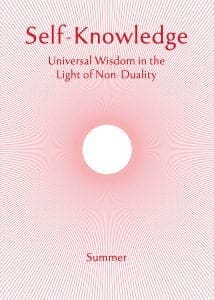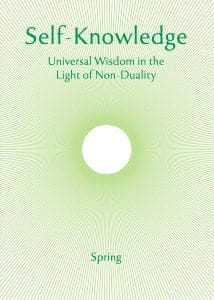Lift Yourself by Yourself
Most people value experiences that uplift the mind and make it feel better. To feel better is a vague and relative expression, so let us briefly identify some of its more worthwhile manifestations. These might include a feeling of lightness, where we are uplifted out of our worries. We may enjoy a sense of expansion…
Read MoreWho Are You My Dear One?
The Thousand Teachings of Shankara, Part One, Section One Some of us come to the non-dual teachings with an outlook shaped by the belief that there exists a Supreme Being who commands our deepest respect and gratitude, in which case we may be unsettled if the non-dual teachings seem to question the validity of the…
Read MoreTotality of Experience is Vedanta
Our life embraces the waking, dreaming and dreamless sleep states. There is something beyond these three states of consciousness. It is called Turiya, or the fourth, on which the three come and go, like waves and bubbles on water. It is known as the witness of the three. In Western philosophy the waking state is…
Read MoreSeek and You Shall Find
One of the most significant aspects of the teachings of non-duality is that they insist on the active investigation of the highest truth. The message of all the great wisdom traditions may be the same, but it is not sufficient to rest content with blind faith in the greatness of the teaching or the spiritual…
Read MoreShankara on Meditation and Knowledge
Through careful study and reflection we may gather the following conclusions from the teachings of Shri Shankara regarding the principles underlying the practice of meditation, and the means to knowledge of Reality. Meditation is but a means of mental discipline, a method of controlling the ever-shifting activity of the human mind, which has been aptly…
Read MoreBhagavad Gita Chapter 18: The Highest Refuge and Knowledge
The Bhagavad Gita Chapter 18: Part Two In the search for inner illumination, the Bhagavad Gita advises us against withdrawal from the world. The Gita teaching is not to give up active life, but to let go of attachment to our actions and their results. Giving up attachment to action means not dwelling on thoughts…
Read MoreThe Introduction to Shankara’s Brahma Sutra Commentary
The Brahma Sutras (also entitled the Vedanta Sutras), are a group of 550 aphorisms, divided into four books of four chapters each, but totalling only about six pages. The brevity is intentional, allowing the text to be easily memorized. Some of the sutras deal with certain specific Upanishadic texts and claim, against other earlier interpretations,…
Read MoreWinning Over Your Mind
Life expresses itself through the body and the mind. Yet there is something more—an invisible principle which is the ultimate source of the body’s energy and the mind’s awareness. Itself motionless, it seems to play no part in human affairs. It is therefore ignored, either unconsciously through ignorance of its presence, or consciously through disbelief…
Read MoreThe Non-Duality of Shri Shankara
Further extracts from H P Shastri’s essay on the Outline of the Advaita of Shri Shankara Moral virtues Let us consider the position of moral virtues in the non-dual teachings. In our practice, the inner life is considered more important than the outer life. Ethical living according to dharma makes the higher experience easier. A…
Read MoreMeditation – More than a Science or Art
For practical purposes, meditation may be regarded as both an art and a science. Like science, meditation is an expression of our desire for knowledge. In the case of science, our faculty of understanding is directed outwards, to the world. With meditation, our enquiry turns inwards, in order to discover a sure path to ultimate…
Read More


